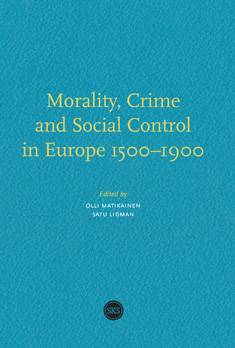Morality, Crime and Social Control — in Europe 1500-1900
Matikainen, Olli; Lidman, SatuTuotetiedot
| Nimeke: | Morality, Crime and Social Control — in Europe 1500-1900 | ||
| Tekijät: | Matikainen, Olli (Toimittaja) Lidman, Satu (Toimittaja) |
||
| Tuotetunnus: | 9789522225726 | ||
| Tuotemuoto: | Pehmeäkantinen kirja | ||
| Saatavuus: | Toimitusaika 1-3 arkipäivää | ||
| Hinta: | 26,00 € (22,91 € alv 0 %) | ||
|
|||
| Kustantaja: | Suomalaisen Kirjallisuuden Seura |
| Sarja: | Studia Historica 84 |
| Painos: | 2014 |
| Julkaisuvuosi: | 2014 |
| Kieli: | englanti |
| Sivumäärä: | 362 |
| Tuoteryhmät: | Historia Books in English |
| Kirjastoluokka: | 30.12 Elämäntapojen sosiologia. Kulttuurisosiologia |
| YSO - Yleinen suomalainen asiasanasto: | sosiaalinen kontrolli, sosiaaliset normit, moraali, rikokset, historia |
This book explores key themes in European history through case studies scrutinizing the much-debated concept of "social control" from its exercise within the family and local communities to interventions at the highest state level. A wide range of regulated practices and institutions can be treated as manifestations or forces of social control. Their common feature is the way in which they develop a set of practices and rituals, some of which are enduring and seemingly unchanging, some in a state of transition or subjected to challenges, and others "new" and in the process of formation. The articles in this book cover a time span from the early modern period up to the twentieth century, and a geographical spread from various locations in Nordic countries to continental Europe and the British Isles.





